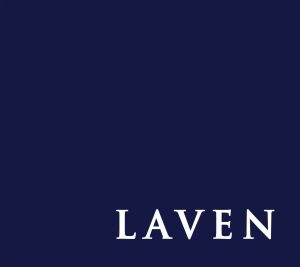JW: How has the value proposition of regulated hosting platforms changed in the last couple of years?
JL: Even over the last five years, I would say the value has increased tremendously and with increased value comes increased usage, leading to increased scrutiny. The appointed representative (‘AR’) model has become a fast-track and simplified method for a UK firm to provide investment advice and arrange transactions or deals in investments. Non-EEA firms often select the UK as their branch destination which, to date, has served as a strategic location to those who wish to access both the UK and the EEA. UK regulations and regulators alike have developed a comprehensive system which provides ARs with a pragmatic business model.
However, with increased popularity comes increased FCA scrutiny. Laven has avidly followed the FCA’s and ESMA’s guidelines and publications by aligning its internal practices to meet best practice standards. It also offers all its clients access to dedicated compliance software, independently provided by Laven Tech to the broader market, which is hugely popular as it saves time and keeps compliance at the highest standard with little effort.
A prime example of the increasing scrutiny and display of attention to that segment of the financial services market was displayed through the FCA’s well-publicised “Dear CEO letter” (2019). The letter caused several platforms to rethink their methods and adapt their processes accordingly, making it very apparent that even established platforms struggled with some of the basic compliance standards expected by the FCA. Of course, the compliance workload has increased and for any platform like us, which are handling not only clients as appointed representatives, but also helping host managers, it means a lot more work and coordination. At Laven Hosting we have continued to adapt to ever better standards/new rules, but being mindful of the commercial impact. To achieve this, our consultants are heavily trained in ‘real’ financial services activities to better understand clients, and we also license software from Laven Tech, a group company, that has created compliance tools to stay on top of all of the monitoring that both clients and ourselves must do, in a simplified and streamlined way.
So in that regard, the value proposition is a lot higher than it used to be. The software, for instance, permits our team to focus on the essence of monitoring by fast-tracking some of the administrative and mundane tasks, like holding registers of gifts, or building recourses for the preparation and approval of financial promotions. We also use the software for our own client onboarding which allows us to quickly review documents and information about their business plan/projections / reviewing their client profiles etc. Our own hosted clients also use the software to log in personal dealing requests for automatic approval/rejection or to assess their clients for AML, suitability or categorisation. Everything is faster and easier and correct that way.
JW: Have you been seeing much-increased interest in managers who are starting their businesses in the, not just this year, but maybe over the last 12 months that may be spinning out of existing shops that want to get to market quickly but have got to be careful about choosing the right regulatory host?
JL: The pipeline is big indeed. We turn down clients whom we think do not fit our permissions like those looking to service retail clients and this allows us to accommodate others including more innovative businesses in new areas like private equity, or digital assets. We also see demand increasing because of the delays on getting a full FCA application, the complication of finding a good compliance officer or doing it yourself, even with a consultant. An AR is supported by the principal firm in its compliance obligations, meaning a lot of handholding and the principal carries the regulatory burden of ensuring the AR abides by its permission profile, providing a direct helpline for compliance matters and questions. This is often relevant, for example, where they deal with rich clients but who may not fit the requirements to be deemed a professional-client. This is a confusing area of the rules for many. The categorisation requirements have become complicated. Not many HNWI and Sophisticated Investors are able to qualify as professional clients despite displaying financial strength or investment experience in the relevant financial instrument. Guidance is imperative in such cases, which becomes very accessible if connected directly to a principal. Thus, the demand for platforms at this stage will continue to grow.
Another appeal to use a platform is that by using a third party ManCo or joining a delegated manager (if in a MiFID set up) the platform like ours would have an established team working with the manager to set up a risk framework. We bring along processes and systems to onboard investors and clients alike. We also serve as a centralised point of connection for service providers (such as administrators, custodians, lawyers) required for the setup of the fund. In recent months this has definitely played a role, as more ‘intelligence’ from our part, helps clients set up faster and better for the long run. A less obvious area where we pride ourselves on helping a lot is in relation to regulatory reporting requirements which are becoming more convoluted. We see clients move hosting platforms to be sure that the regulatory reporting is done well as errors are potentially costly/onerous. Savvy clients also come to us to avoid putting up regulatory capital as this is for the principal firm to do, not the hosted company. To become a standalone regulated firm, you need a minimum capital which is locked in. So, if you join a hosting platform, all of that is passed on to us and I think it alleviates a lot of headaches. All of these are seemingly reasons for the increasing pipeline of the last 12 months.
We have also seen a tightening in the hosting platform market because a few platforms have had to limit how much new business they can take on because of the scrutiny from the FCA. Although the Dear CEO letter was issued in 2019, the FCA has continued to investigate platforms concerning how they work with their appointed representatives, or managers so the market is certainly growing more limited.
JW: Has COVID-19 delayed the FCA approval process this year?
JL: In fairness, the FCA has been quite good at initially picking up new applications this year. However, and perhaps this is more linked to Brexit and the ambition of being a third-party country, it is spending more time on processing applications. It is spending more time on the applicants themselves. This is also connected to the SM&CR regime (Senior Managers and Certification Regime) which now applies to asset managers. All in all, the FCA applications take longer, but I don’t think it’s to do with a lack of resources due to COVID-19.
COVID-19 has impacted the demand or slowed down launches for some businesses, where they cannot conclude on the asset raising. Investors are more bearish when they do not know the future as much as they think they should.
JW: Talk a little bit about how Laven Tech is benefitting your clients, the suite of compliance tools that are frankly needed for anyone who is running any MiFID or AIFMD-related business today?
JL: The last decade in compliance has been really interesting. As with all established industries, you can either keep to the same old model or change, and we decided to change in 2015. We created Laven Tech, an independent company that focused on developing systems to support all steps in the compliance workflow. For example, the compliance diary, which sounds mundane, but firms often forget about their deadlines/obligations as set out in rules or their compliance manual., Laven Tech also allows compliance officers to set review periods in line with their to compliance monitoring plans, which are tailored to the clients’ needs automatically.
So whether you are a private equity or venture capital firm as opposed to a hedge fund or liquid firm, all of our testing and monitoring is tailored inside the software to ask the right questions, to produce the right report, which you can then deliver to your investors, your governance or the FCA. We focus on this because everyone recognises that in compliance, most tasks are mundane and repetitive, and the key is not necessarily to be super smart about them, although they’re getting more and more convoluted, but rather to do them properly and demonstrate how you have done them. Today, every client that we have, for example on the hosting platform, will have a completed aided report for money laundering/categorisation/suitability on their clients, which they have to do. We have to make sure as principal that they procure the reports and it is much easier than taking paper or email attachments. It is completely integrated into the software that can be shared with the outside client or third parties. The software will guide users through each step.
Every client will have a financial promotion module. So, if they’re writing a PowerPoint and they’re not sure what they should say in there, they’ll be able to cross-check all the rules, before issuing their document. For client suitability, if you’re proposing to advise a client on your fund, you must ensure that the fund is suitable for that client. Laven Tech has a bespoke module for this called the ‘Suitability Assessment’. These can even have scoring matrixes attached so that you can say if this client scores over 70 per cent it means you can engage with them about that specific product.
All of this means that we save about 40 per cent of our time which is passed on to our clients and I think clients appreciate that. As one client remarked it’s a “very open architecture tool” due to its flexibility. That is a very unique part of the Laven group, even if Laven Tech licenses the software globally.
JW: Do you tend to find that clients choose to remain on the platform despite having thought about becoming self-regulating, but because of all of the benefits that you’ve pointed out, that they maybe feel they don’t need to take that step to become standalone?
Yeah, I think very much so, I know that in the industry, there are a few clients who go to a host and then leave the host within a planned period. At Laven, we’ve experienced little of that. I think the reason is because of all that we offer, it is rather unique. Now, of course, from time to time, some clients decide to do an application and it’s perfect. Almost always they will stay on with the consulting group in any case or continue to license the Laven Tech for themselves. You know, that’s the other positive thing, as an entrepreneurial group we’re just happy that the clients succeed, that’s what counts.
JW: There are plenty of choices, but not all platforms are created equal. The FCA and other European regulators have voiced their concerns that maybe platforms are not doing a good job of accurately reporting on behalf of their clients. They are not giving sufficient risk oversight and compliance oversight. What are the risks that people need to be aware of when they are onboarding to a platform to keep them out of the line of fire from the regulators?
JL: We’ve inherited clients who left platforms because in the end, maybe the SFTR reporting or the EMIR reporting wasn’t done properly or wasn’t even on offer. When these requirements came into force, some platforms decided that it was the responsibility of the client and they needed to have their own licence to whatever provider to ensure the reporting. I think that makes it very difficult for clients, so we never took that view. We always jumped in and said, well, it’s also our problem and let’s make it work. There are also reported cases where principals have inadvertently misreported data, maybe using the wrong details, but small technicalities like that meant that some clients we’ve inherited have had to report all of their trades again! So yes all platforms are not created equal. You want to work with people who understand your investments but also the details of the rules and who have the tools to support your business.
It’s always hard when you’re choosing a platform to know what questions to ask. None of this is particularly obvious if you are a start-up, so it’s good if you’ve got someone willing to explain this to you and provide some guidance. We find that we’re involved a lot, especially with clients who may have a UCITS or an AIFM in Ireland or Luxembourg, and then they need to be in the UK as a MiFID manager. They may have lawyers involved but we try and help with their contracts as much as we can, as we are a party in those contracts and we take that seriously. Often this helps with the clients’ set up and in answering pragmatic questions.
All of this is very much part and parcel of what we’re trying to put together and we can work with other hosting platforms in Europe as need be to make sure this is successful. We also work with brokers, administrators, custodians to make sure all of those trade links work out so that we can all have oversight over any risk or any portfolio management.
JW: With Brexit now just around the corner, the UK has now become a third country and the whole passport appeal of a UK AIFM will disappear. So how are you thinking about this as a UK FCA authorised firm? What kind of questions are you asking internally as to how you will help your UK clients when they are looking to continue to market and distribute their funds going into next year?
JL: So there are two aspects to that. There is “how do I market” and then there is “how do I manage” post Brexit?
In January 2020, we left the EU and now we are in a transition period until the end of December. Then come next January, we’re out! However, in relation to managing assets, there is some flexibility and different countries have said we can continue to work with U.K. based asset managers, we will work closely with such countries. If you’re a MiFID investment manager under the delegation model allowed by the EU UCITS and AIFM directive, then you’re allowed to carry out fund management activities post-Brexit as the ManCo or AIFM still retains the end-liability and will abide by the AIFMD and UCITS directive. This delegation model is being challenged by the AIFMD review but we are confident that there will be a third-country equivalency granted to the U.K. as we have been diligently implementing EU financial directives until now. When it comes to marketing, this is far harder because here the EU sees us as taking a share of the market by taking investors out of the EU into our UK earning products, so that distribution is likely to stop from January 2021.
A lot of people are saying, well, it will depend on a few things and indeed it will. It will depend on whether there’s a deal. I believe there will be a deal, but I don’t believe financial services will be covered in the deal because that’s an easy one for the EU to push out. The fisheries are more important than shares right now in the context of Brexit. With that in mind, I think we will have no more passports, and everything that we can do today, i.e.walk across to Italy or Spain or wherever to promote a product (so long as the product is also registered), will stop. The difficulty is, how do you continue that from January onwards? I don’t see too many solutions. One of them is to say, ‘well, I’ll also use a tied agent in the EU, right?’. The problem with that is you have to have substance in the EU for that to be legal and at the moment, you’re likely to be stuck here because of COVID-19. So, you’re still likely to make your phone calls and your emails from the UK, and that would be a breach of our exit and the EU rules.
The other option is to set up in the EU; obviously, that’s expensive. Again, you need substance, so you need your people there, and that’s a huge cost, especially for a start-up. So, I would say for now, as much as you can, focus on your key investors; the reality is a lot of your investors are probably not in the EU, especially for more alternative products. So that’s great. Use the UK, go to Hong Kong, go to America and try and raise money that way and let’s see how things work out, rather than invest too much energy and money at this point into trying to get a few EU investors.
JW: It does seem as though Europe is going to be a little bit, well, off-limits or at the very least, the costly option, perhaps, for some managers who are looking to continue to raise assets on the continent. Jerome, it remains for me to just say good luck for the rest of this year and we’ll be looking carefully at how things develop next year, post-Brexit.
JL: It’s all going to be very good. I’m very optimistic, so I think we and our clients will do very well. I hope your organisation does too!





